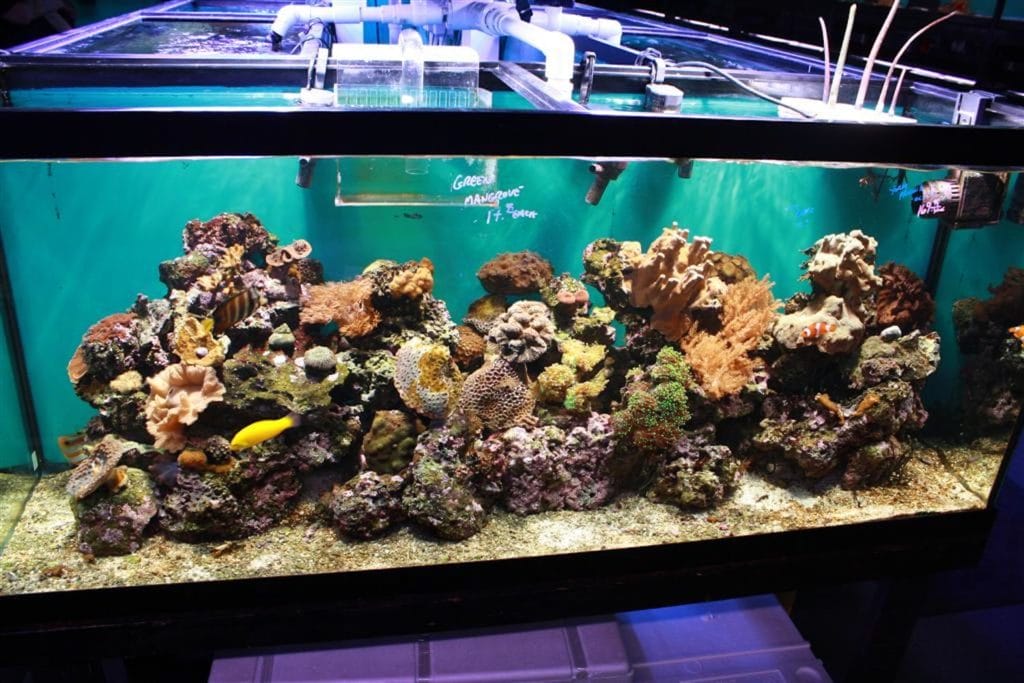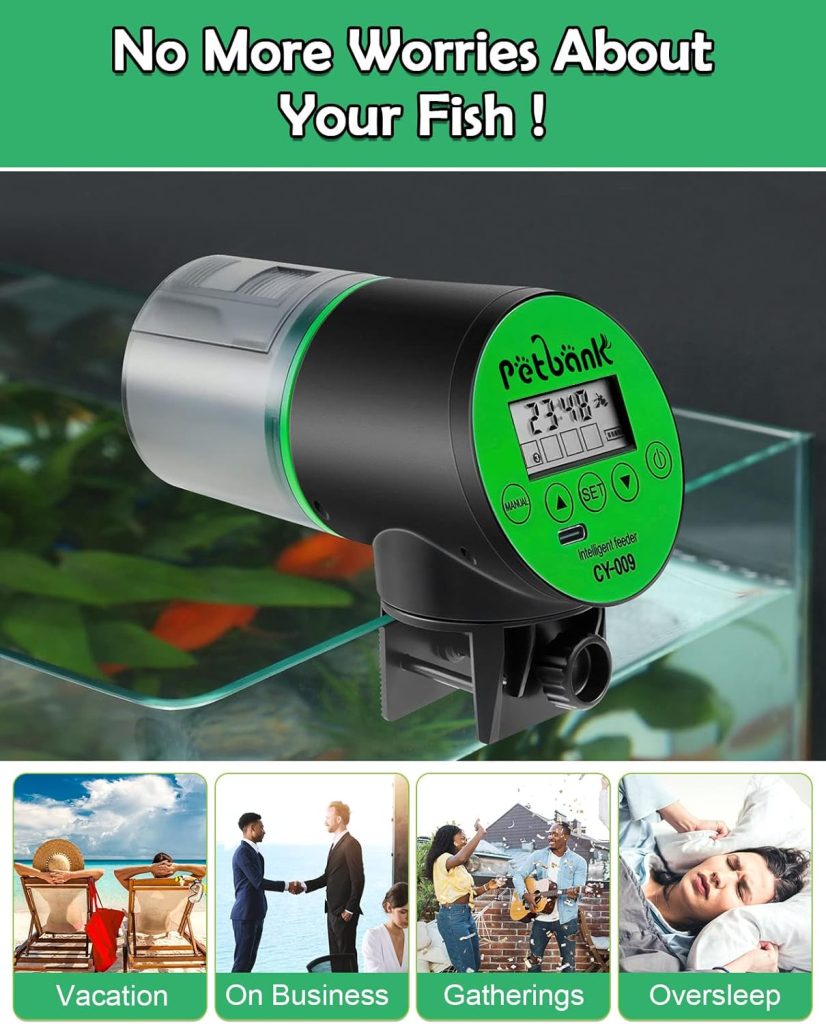
Before you pack your bags Prepare your aquarium for Vacation and set off for a well-deserved getaway, your underwater friends need some special attention. The stress of leaving your aquatic ecosystem unattended can transform an exciting vacation into a worry-filled experience. Fear not! This comprehensive guide reveals expert-tested methods to keep your aquarium thriving while you’re soaking up the sun miles away.
Prepare Your Aquarium for Vacation Early: 7-10 Days Before Departure
Planning ahead is your strongest ally when preparing your aquarium for vacation. Don’t wait until the last minute to make arrangements for your finned friends.
“My first, basic preparation step generally starts somewhere between 7 and 10 days before departure,” notes expert aquarist Albert B. Ulrich III. This advanced timeline gives you enough wiggle room to address any unexpected issues before you’re rushing out the door.
During this preparation window, focus on gradually increasing your fish’s food intake. “For about 7-10 days before I plan to leave for a few days of vacation, I feed my fishes, corals and aiptasia anemones more heavily than usual,” Ulrich recommends. This “fattening up” period ensures your aquatic pets have extra reserves to sustain them during your absence.
Perform Tank Maintenance 48 Hours Before Leaving
Never clean your tank right before walking out the door! This common mistake can lead to disaster.
The Aquarium Coop advises, “Give your fish tank a good cleaning a couple of days before your departure. Do a partial water change, vacuum the substrate with an aquarium siphon, and clean the filter if needed”. This 48-hour buffer is crucial because it allows you to:
- Monitor water parameters after cleaning
- Ensure all equipment functions properly
- Observe fish behavior for any signs of stress
- Address any emerging problems before departure
“While you might be tempted to do a partial water change or carry out routine filter maintenance just before you go, it’s better to do it about a week before you leave for your vacation,” cautions Fishkeeper. This timing prevents the dreaded scenario of discovering equipment failures when you’re already on the road.
Top Off Water Levels Completely
The day before departure, fill your aquarium to the appropriate level. “The day before you depart, fill the aquarium all the way up with water,” advises Petrons. This simple step combats evaporation, which could otherwise lead to dangerous concentrations of minerals or even equipment failure if water levels drop too low.
For reef tank owners, ReefBum emphasizes, “Make sure your RO/DI reservoir has enough water to last the length of the vacation plus another week”. This extra buffer ensures your automated top-off system won’t run dry.
Choose the Right Feeding Solution
Four reliable options exist for keeping your fish fed during your absence. Your choice depends on your trip duration and tank setup:
Option 1: No Feeding (For Short Trips)
Surprisingly, for trips under a week, the easiest and often safest option is to skip feeding altogether. “If you’re only leaving for a week or less, the easiest method is to not feed your fish,” advises The Aquarium Coop. Fish can safely go several days without food, and overfeeding poses a greater risk than underfeeding.
Option 2: Vacation Feeders
For longer trips, vacation feeders offer a solution. “They come in sizes for 2 days (weekend), 7 days, and 14 days,” Petrons explains. These blocks slowly dissolve, releasing food particles periodically.
The 2Hr Aquarist recommends, “The excellent AquaCare Holiday Block, for example, has a specially formulated diet to keep your fish healthy whilst you are away from home.”

Buy Now $20.39
Option 3: Automatic Feeders
For precise feeding control, automatic feeders work wonderfully. “Both battery-operated and electric plug-in variants of automatic feeders are available. They have timers that may be adjusted,” notes Petrons.
Important tip: “You can easily fill them with whatever types of flakes, pellets, sticks, or tablets you need… Most are fully adjustable, run reliably on batteries, and will easily attach to the top of the tank.”
Option 4: Fish Sitter
For extended vacations, consider recruiting a reliable fish sitter. Just ensure they’re properly instructed on feeding amounts-overfeeding by well-meaning friends is a common disaster!
Check and Maintain All Equipment
Equipment failure during your absence can be catastrophic. Minimize this risk with thorough checks:
- Filter system: Clean without replacing all media at once. Check out the product
- Heater: Verify it maintains proper temperature. Check out the product
- Lights: Set timers to maintain regular photoperiods. check out the product. Check out the product
- Pumps: Clean impellers and ensure proper flow. Check out the product
- CO2 system (if applicable): “If you use a calcium reactor, check to make sure your CO2 is not running low. Check out the product
ReefBum advises: “Equipment will eventually fail if it is not maintained on a regular basis. For example, I perform maintenance on my peristaltic dosing pumps every three months to make sure they run as smoothly as possible.”
Avoid Major Changes Before Vacation
This critical rule can save your aquarium: no new equipment, fish, or major changes before departure!
“You have a new skimmer that needs to be installed, or you want to add a second return pump to your sump. DON’T DO IT!” warns ReefBum. New equipment often requires tweaking and monitoring-something impossible while you’re away.
Similarly, avoid adding new fish right before vacation. They need time to acclimate and establish themselves in your tank’s ecosystem.
Trim Plants in Planted Tanks
For planted aquariums, The 2Hr Aquarist recommends, “One of the most important things to do before a trip is to trim/replant the stem plants down to 3 or 4 inches and let them recover during the trip.” This prevents overgrowth and reduces nutrient demand while you’re away.
Leave Clear Instructions for Fish Sitters
If someone will be checking on your aquarium, provide detailed written instructions.
- Exactly how much food to give (measure it out if possible)
- Which days to feed
- What normal tank conditions look like
- Emergency contact information
- Basic troubleshooting steps
The most common mistake well-meaning fish sitters make is overfeeding, so be explicitly clear about portion sizes.
Consider Investing in a Controller
For serious aquarists, especially those with reef tanks, a controller provides peace of mind. “An aquarium controller is a great tool to have while on vacation. Just make sure you don’t set one up right before you go on vacation,” advises ReefBum.
Controllers monitor parameters like temperature, pH, and water levels, allowing remote monitoring of your system while you’re away.
Prepare for Emergencies
Leave an emergency kit and instructions for worst-case scenarios:
- Water conditioner
- Extra filter media
- Basic medication
- Local fish store contact information
- Step-by-step emergency procedures
By following these ten essential steps, you can enjoy your vacation without constant worry about your aquatic friends. Remember, proper preparation is the key to returning to a healthy, thriving aquarium!
